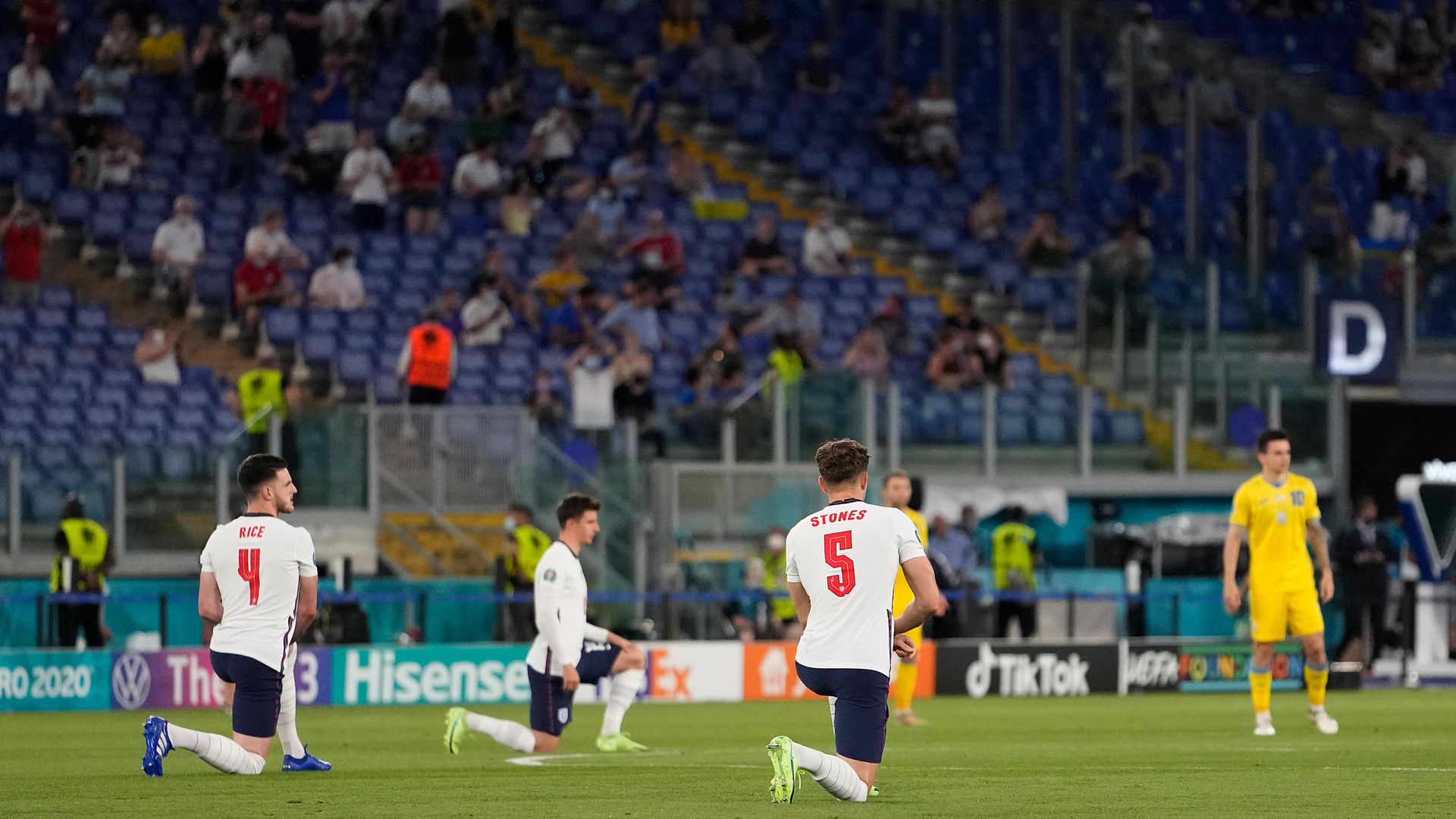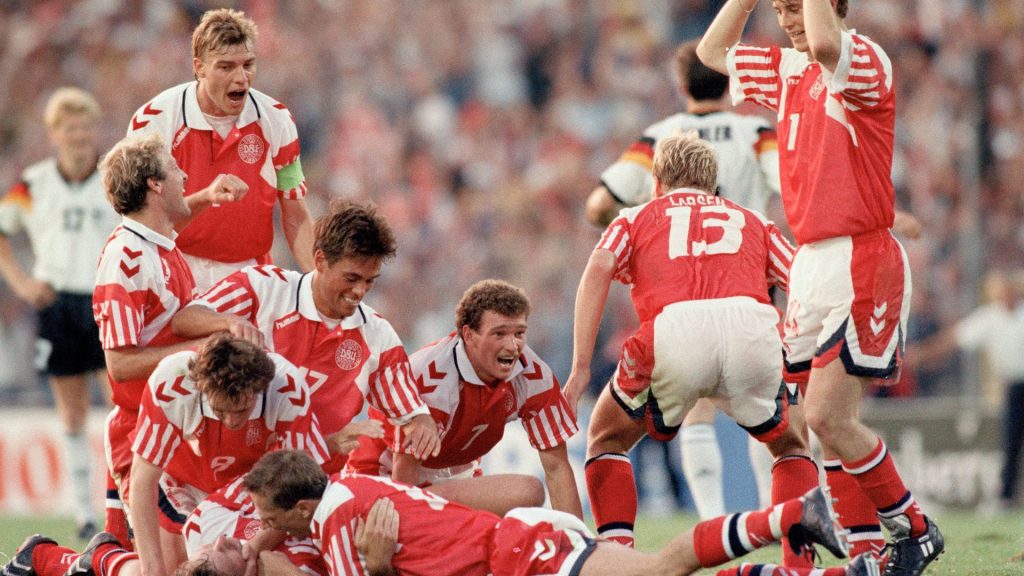
Maybe this will be remembered as the summer when respect came home.
Not just respect for England’s footballers and for their choices, but respect for their opponents, too.
If the sweet scent of optimism became impossible to ignore as Gareth Southgate’s team progressed through the Euros, the less pleasing whiff of English superiority could be detected in the air, too. On TV, the identity of England’s possible opponents in the final was being debated even before the knockout stages had begun. I the stands, the booing of rival national anthems grew louder.
Once Germany had been beaten, the teams in our half of the draw were written off as “little” or “inexperienced”. It was as if UEFA had set it all up when they handed England home advantage throughout all bar one of the games in this tournament that they imagined might cleanse the continent of Covid and everything else that frightens us in life.
It is worth noting that neither Southgate nor his players bought into any of this. They will have been aware of the sense not just of expectation but almost of entitlement that has accompanied England in previous tournaments. In this one, they will have seen how the Swiss upset the pre-tournament favourites, France.
They will have had respect for their semi-final opponents the Danes, too.
So will those of us who remember this Scandinavian country of 5.8million people beating Germany 2-0 at the magical 1986 World Cup in Mexico.
That same team of Morten and Jesper Olsen, Michael Laudrup and Allan Simonsen, mesmerised Uruguay to a 6-1 hiding in the same tournament.
It was the fairy story of Danish Dynamite. It was the Viking spirit on the playing fields. And, to Danes, it came in a second wave in 1992 when their team that had not even qualified for the European Championship took a last-minute invitation to the ball and went on and on to do what England has yet to do… win the whole event that is second only to a World Cup.
That Euro, staged across the bridge in neighbouring Sweden, showed us a more regimented, more pragmatic Danish football. The invitation to play came late because Yugoslavia was being torn apart by internal war and was expelled just days before the Euro.
And, just as Denmark grew rather than surrender to the shock of their play-maker Christian Eriksen collapsing from heart failure in the opening game of this tournament, the class of ’92 seemed emboldened by two traumatic hits that brought out their fight-not-flight response.

There was the revelation that Kim Viltfort, one of their attacking midfield players, had twice flown the camp to be with his seven-year-old daughter in hospital in Copenhagen with leukaemia.
Twice he left, and twice his child asked him to go back and bring home the trophy. Viltfort did as his daughter requested; he helped set up for the first goal of the final against Germany, and Viltfort scored the second and scored in a 2-0 victory against the odds.
There was also a sporting tragedy, a broken knee during the semi-final against the Netherlands. None of us in the stadium that day will ever forget the injury so graphic that we literally could see the displaced bone bulging above the knee of Henrik Andersen after he collided with Marco van Basten.
That semi-final went into injury time, then extra time, then penalty kicks. And, again, there was an ingrained memory — the big left hand of Peter Schmeichel saving the low shot from one of the world’s most accomplished strikers, van Basten.
For Peter, the Great, read Kasper Schmeichel now. The son had a hand in the greatest underdog accomplishment in modern football, Leicester City winning the Premier League in 2016. To remind us, Leicester won the FA Cup this May at Wembley.
Peter was a leader, Kasper is a leader. It is in the genes. It is loud and demonstrative, but for me the Danes of ’92 will always be the team, epitomised by the selfless spirit of Vilfort.
One of the awkward things of being a journalist is that you sometimes have to comment about the personal lives of players you had not met in person, much less pretend to know their pain.
With Vilfort, the meeting came 25 years late. We shared a panel at the University of Copenhagen. I had been invited to write a chapter in a book where Danish historians put their perspective on the sociological effect of that Danish summer of 1992.
In front of the audience of students and academics, I apologised for having to assume the feelings so many years earlier of a player going back to Stockholm to bring the Cup back to his country, and his dying daughter.
He put me at ease, on that university stage and over dinner that night. A gent, a sportsman, a father, a Dane.
There was another memorable guest at the launch of Europamstrene, the book looking back on Denmark’s finest sporting hour. It was Uffe Ellemann-Jensen, the Danish minister for foreign affairs at the time when the Danish public voted 50.7% against the Maastricht Treaty on European Union.
So England and Denmark share more than just a football contest.
Ellemann-Jensen was against his countrymen and women, but he was obliged to sit with European leaders in Lisbon to negotiate the Danish opt-out. It was 24 days after the vote, and he was in the chamber, sitting alongside Germany’s chancellor Helmut Kohl.
He remembered Kohl forecasting a 3-1 win to Germany but “losing interest” after the first Danish goal. It was there that Ellemann-Jensen said at a Press conference: “If you can’t join them, beat them.”
For the book, I asked a number of Danes if the football victory of 1992 redefined Danish nationhood. “No it did not!” Ellemann-Jensen insisted. “I was proud, of course, but under my breath I was thinking ‘Oh shit… this will make us Danes even more difficult to deal with at a time we have to find a way out of the mess created by voting No to Maastricht!’”
The politician paused, chuckled, and said: “We Danes never underestimate our own importance and strength. We just tell others that we do.”
He suggested I read a Grook (a rhyme) by the poet Piet Hein:
“Denmark seen from foreign land
Looks but like a grain of sand
Denmark as we Danes conceive it
Is so big you won’t believe it
Why not let us compromise
About Denmark’s proper size
Which would truly please us all
Since we’re greater than we’re small.”
A pride in being small but determined, rather than a belief that we are better than everyone else, would be a real prize for England to take away from this summer.










